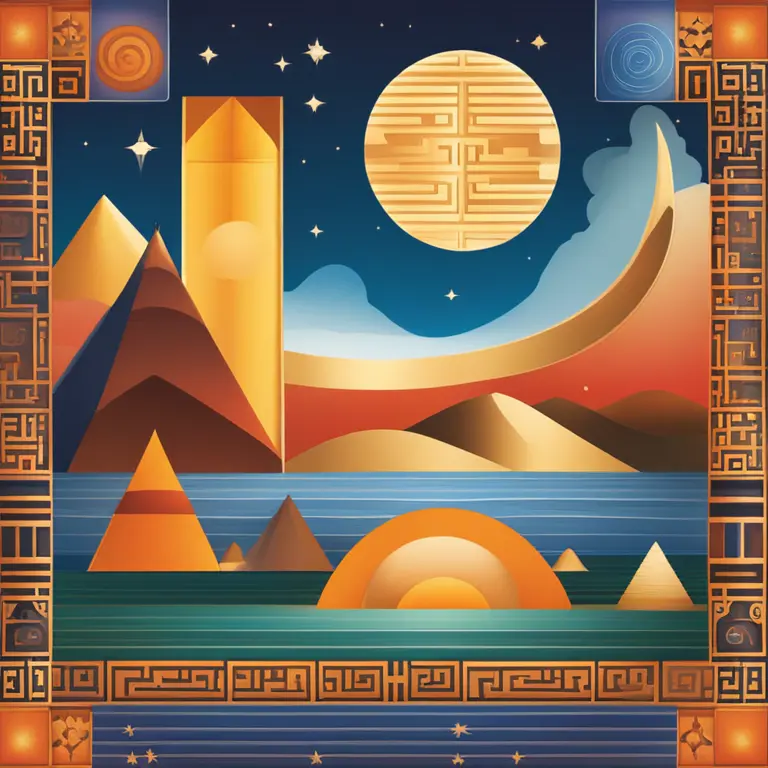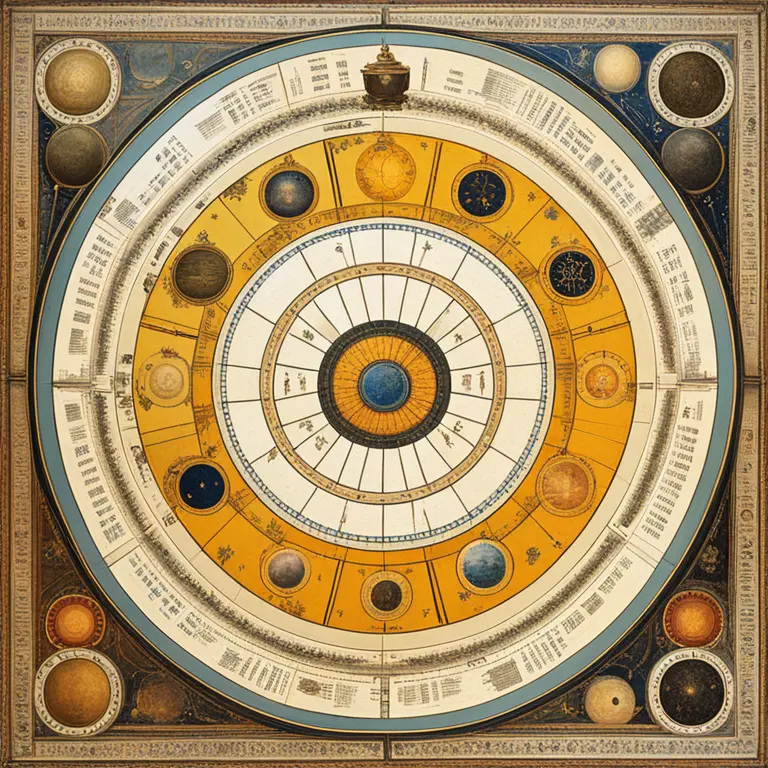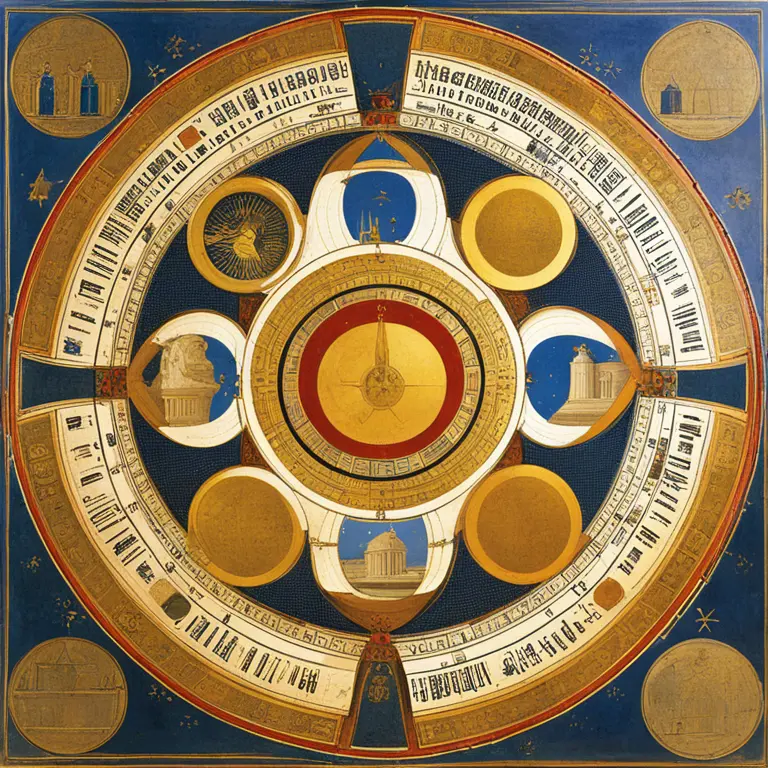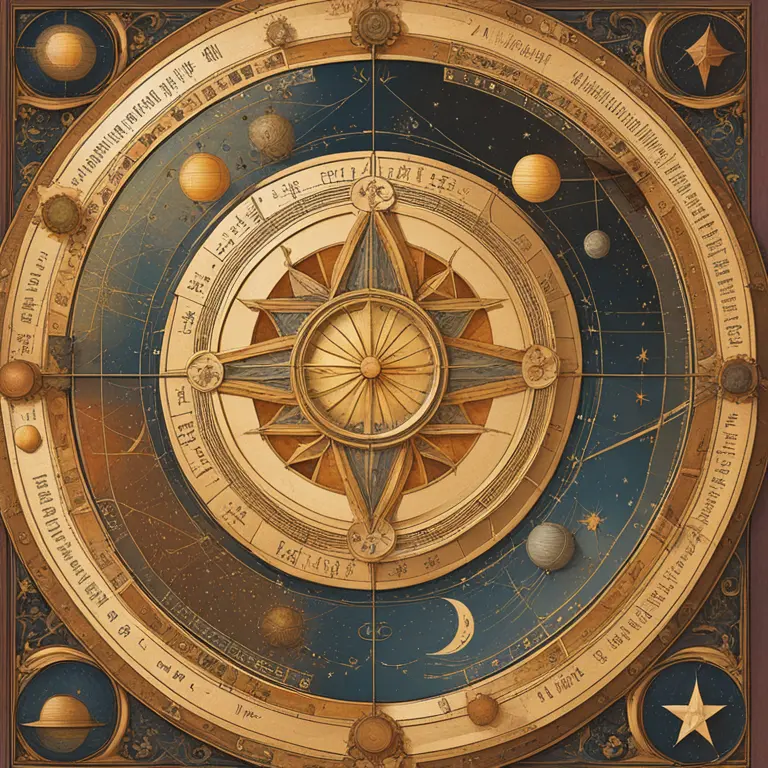
The Origins of Astrology: Who First Mapped the Stars?
Delve into the ancient beginnings of astrology, tracing its origins and the civilizations that contributed to its development as a symbolic language linked to celestial phenomena.
article by Priya Deshmukh
The Dawn of Astrological Thought
Astrology’s inception is an enigmatic tale woven through the fabric of ancient history. Why did humans start mapping the stars, attributing their life's events to cosmic movements? This practice possibly began with the Babylonians, as early as the second millennium BC. Their meticulous observations led to the creation of some of the first astrological charts, setting a foundation for the predictive art of astrology. The meticulous Babylonians sought to understand celestial cycles, convinced that celestial bodies wielded influence over terrestrial matters—a principle that underpins astrology even today.

Astrology Spreads Across Civilizations
Astrology did not remain confined to Babylon. Its seeds, carried by trade and conquest, took root in various cultures. The Egyptians adapted Babylonian astrology, aligning it with their own cosmology. Not to be left behind, the Greeks embraced it after contact during the first millennium BC, integrating it with their rich mythological traditions. The philosopher Plato and polymaths like Ptolemy theorized upon the heavens, impressing astrological thought into the framework of Western knowledge. Each civilization borrowed and modified astrological concepts, making it difficult to attribute its invention to a single person or culture.

The Greeks and the Horoscope
The horoscope—a vital tool for astrologers today—owes much to Hellenistic culture. The Greeks, translating and synthesising earlier works, developed the Zodiac and birth charts, enabling the prediction of an individual's fate—a practice that has endured. Ptolemy's Tetrabiblos, written in the 2nd century AD, was particularly influential, presenting astrology as a study with systemic principles and empirical background, lending it an aura of legitimization that would help preserve astrological studies through the upcoming centuries.

The Role of Astrology in the Middle Ages and Renaissance
Astrology's light dimmed slightly in Europe with the rise of Christianity but rekindled in the Middle Ages, when Arabic texts translated into Latin revealed sophisticated astrological knowledge. By the Renaissance, astrology was enveloped in academia, with universities offering courses, and it was not uncommon for doctors to consider astrological charts in their practices. The enlightenment saw a divergence, as astronomy parted ways with astrology, which was increasingly relegated to the realm of pseudoscience within academic circles.

Modern Astrology's Evolution
In the modern era, astrology has experienced a renaissance among the public. The 20th century’s psychological astrology, largely credited to Carl Jung, imbued it with new facets, highlighting the symbolic rather than predictive dimensions of astrological charts. Astrology today enjoys popularity as a tool for self-reflection and identity exploration, more so given the proliferation of Internet access and digital tools, making it easy for anyone to draft a birth chart or read a daily horoscope with the click of a button.
Astrology Looking Forward
Astrology's role is continually redefined as society evolves. With advancements in AI and machine learning, the ancient charts have found a new frontier that may offer more personalized and statistically-backed insights. While skeptics remain, the desire to find meaning in the stars appears to be an intrinsic part of human nature. As we journey into the future, astrology is likely to adapt and persist, remaining a testament to humanity's enduring search for understanding through the heavens.
Published: 2/5/2024
Modified: 2/5/2024
More predictions
Come back here soon to learn more about yourself and your future


The Zodiac Signs and their Influence
Delve into the intricate world of zodiac signs, where celestial alignments offer insights into personality traits, future forecasts, and life paths.


Leo Zodiac Sign Insights: Traits, Love, and Destiny
Delve into the spirited world of Leo: learn about their bold traits, love compatibility, and 2024 forecast in this comprehensive guide.


Zodiac Signs' Essential Elements
Discover what each zodiac sign simply can't live without. Immerse yourself in the world of celestial necessitates unique to every sign.